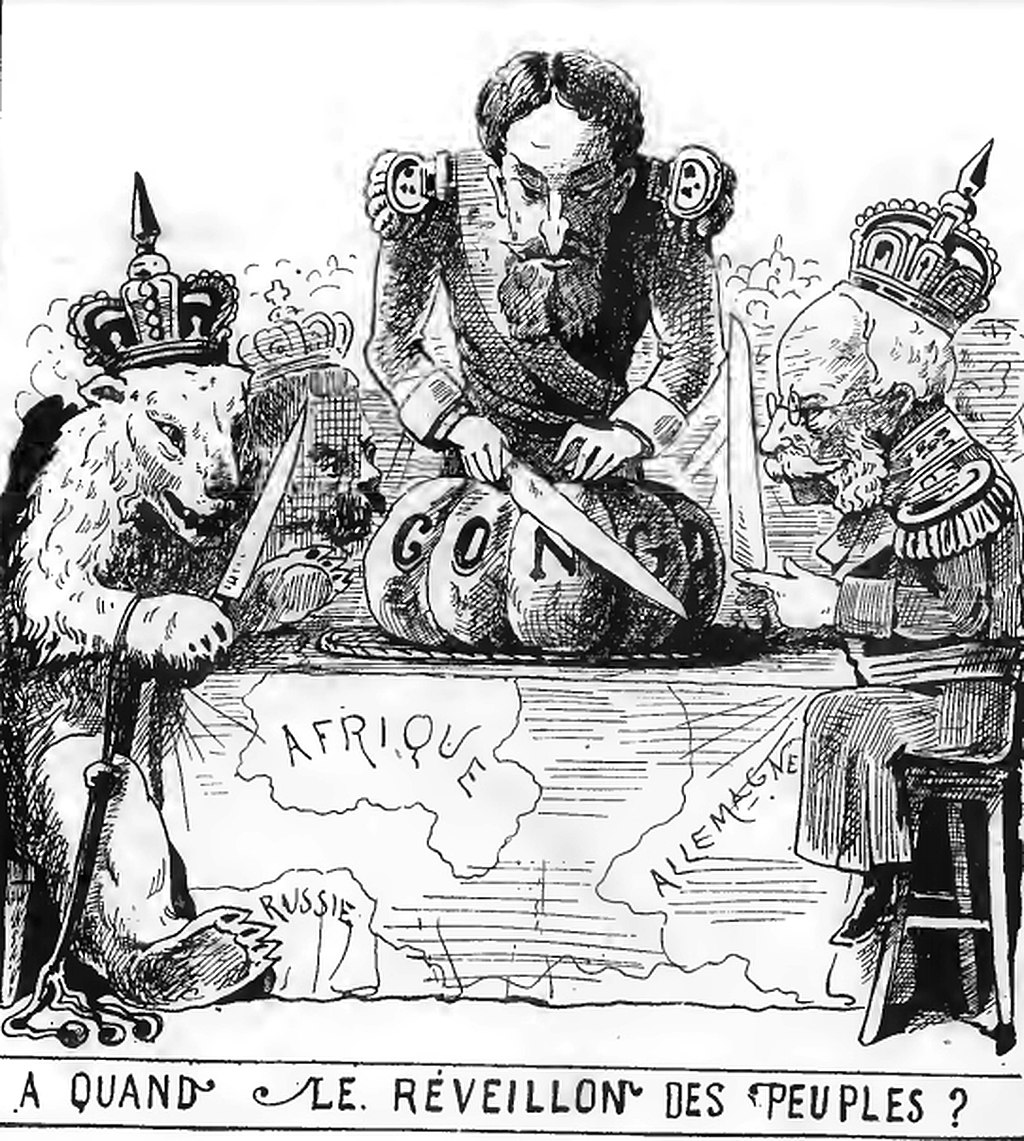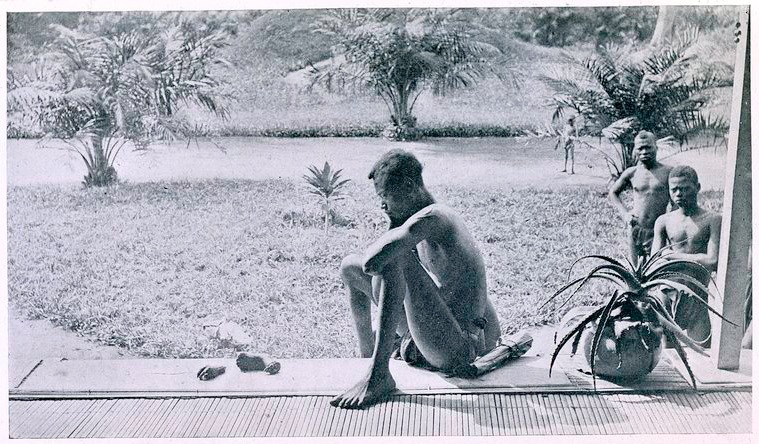The colonial history of the Democratic Republic of Congo is a testament to the ruthless exploitation and oppression perpetuated by capitalist enterprises in pursuit of profit. From the era of Belgian occupation under King Leopold II’s Congo Free State to the enduring legacy of neocolonialism, the Congo’s history is marred by plunder and violence. This article will examine the colonial history of the Congo, shedding light on the systemic exploitation of its people and resources for the benefit of colonial powers and capitalist elites.
The late 19th century witnessed the scramble for Africa by European powers, driven by the insatiable thirst for resources and markets to fuel their capitalist economies. In this scramble, the Congo Basin became a prized territory, coveted for its abundant natural wealth. King Leopold II of Belgium, eager to establish his own colonial empire, exploited the Berlin Conference of 1884-1885 to claim the Congo Basin as his personal property under the guise of a philanthropic mission.

Under Leopold’s rule, the Congo Free State became a nightmarish landscape of exploitation and cruelty. The rubber trade emerged as the primary means of extracting wealth from the Congo, with Congolese laborers subjected to forced labor, violence, and mutilation to meet the demand for rubber in European markets. Countless Congolese perished under this regime of terror, their lives sacrificed at the altar of capitalist greed.

“The rubber trade emerged as the primary means of extracting wealth from the Congo, with Congolese laborers subjected to forced labor, violence, and mutilation to meet the demand for rubber in European markets.”
At the heart of the colonial project in the Congo lay the capitalist imperative of profit maximization at any cost. Leopold’s Congo Free State was operated as a ruthless private venture, where the lives and dignity of Congolese people were deemed expendable in the pursuit of wealth. Despite overwhelming odds, the Congolese people did not passively accept their subjugation. Throughout the colonial period, there were numerous acts of resistance and rebellion against the oppressive regime of Leopold’s Congo Free State. From small-scale acts of sabotage to large-scale uprisings, Congolese men and women fought bravely against their oppressors, asserting their dignity and humanity in the face of capitalist exploitation.
One notable example of resistance was the Congo Arab War (1892-1894), led by Tippu Tip and other anti-colonial leaders against Leopold’s forces. Although ultimately unsuccessful, this rebellion demonstrated the indomitable spirit of the Congolese people and their refusal to bow down to capitalist exploitation.
Patrice Lumumba, the first Prime Minister of the Democratic Republic of Congo (DRC), sought to unify the country and achieve economic independence from Belgian colonial rule. His nationalist stance and attempts to control the DRC’s mineral resources conflicted with Belgian material interests, and so, intervened. This interference, led by the CIA and Belgian authorities, resulted in Lumumba’s arrest, torture, and assassination in January 1961.
“Patrice Lumumba, the first Prime Minister of the Democratic Republic of Congo, sought to unify the country and achieve economic independence, only to be thwarted and assassinated by Belgian and CIA interference.”
The legacy of colonial exploitation continues to cast a long shadow over the Congo to this day. The arbitrary borders imposed by colonial powers have led to ethnic tensions and conflicts that persist in the region, exacerbated by the legacy of divide-and-rule tactics employed by colonial administrators. Moreover, the economic infrastructure established during the colonial era remains geared towards serving the interests of multinational corporations and capitalist elites, perpetuating cycles of poverty and underdevelopment for the Congolese people.
In the post-colonial era, the Congo has become a battleground for neo-colonial exploitation, as Western corporations continue to plunder its vast mineral wealth for the benefit of global capitalism. Minerals such as coltan, cobalt, and copper, essential components in modern electronics, are extracted from the Congo at great human and environmental cost, with little benefit accruing to the local population. Other African countries, notably Rwanda and Uganda, have invaded the DRC to gain control of the minerals and trade in the area too.
“In the post-colonial era, the Congo has become a battleground for neo-colonial exploitation, as Western corporations continue to plunder its vast mineral wealth for the benefit of global capitalism.”
Despite the natural resources, the people of the Congo struggle with a lack of access to even the basics. According to UNICEF just over 50% of the population has access to any improved water sources and 30% to any improved sanitation facilities despite the fact that DRC has more than 50% of the African continent’s water reserves. Only 13% of the population have access to electricity. The chronic under development of the country is an example of the failure of capitalism to meet people’s needs.
In conclusion, the colonial history of the Congo serves as a damning indictment of the destructive nature of capitalism and imperialism. From the horrors of Leopold’s Congo Free State to the ongoing neo colonial exploitation of its resources, the Congo’s story is a stark reminder of the inherent injustices perpetuated by capitalist ventures in pursuit of profit. As we reflect on this history, it is imperative that we stand in solidarity with the Congolese people in their ongoing struggle against capitalist exploitation and for a future based where socialism can build a new society based on justice, equality, and human dignity.
Art (53) Book Review (121) Books (114) Capitalism (65) China (79) Climate Emergency (98) Conservative Government (90) Conservative Party (45) COVID-19 (44) Economics (40) EcoSocialism (55) Elections (83) Europe (46) Fascism (56) Film (49) Film Review (68) France (69) Gaza (59) Imperialism (98) Israel (119) Italy (45) Keir Starmer (52) Labour Party (110) Long Read (42) Marxism (48) Palestine (164) pandemic (78) Protest (151) Russia (340) Solidarity (141) Statement (48) Trade Unionism (139) Ukraine (345) United States of America (132) War (368)

